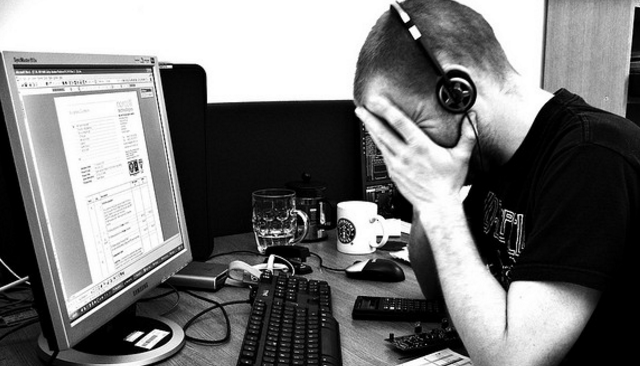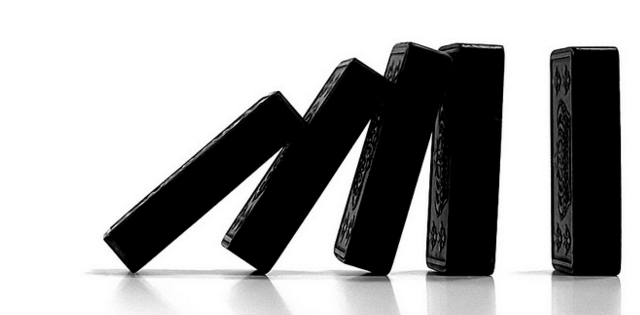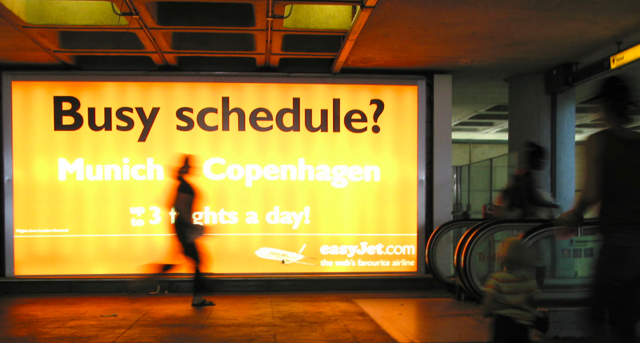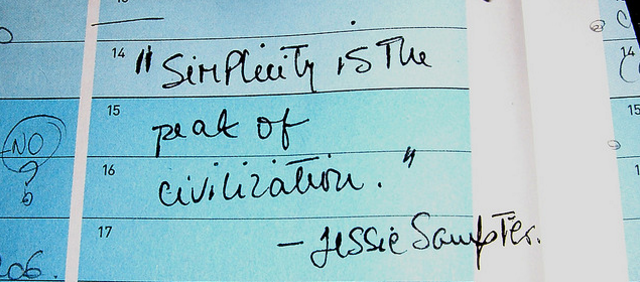After working from the road for 11 months last year, I learned a decent amount about how to be productive. But I learned a lot more about productivity itself.
Travel has been a meaningful part of my life for many years. This is why I devoted so much time to creating a sustainable way for me to earn from the road (no, I'm not a blogger).
At the start of this particular 11-month trip, things were going well. I had more than enough clients, and I was visiting places others presumed could be nothing other than paradise. But satisfaction proved elusive. Full-time hours may buffer the bank account, but they also cause experiences to pass on by.
On Productivity
You soon realize — when every waking hour is spent in the pursuit of productivity — that something fundamental is missing. And whatever it is that's missing is replaced with fatigue, monkey-brain, anxiety, and dread.
This is not because productivity is bad. Productivity in itself is entirely neutral (more on that later). It's because the need and desire to always be "doing things" is overrated.
And ironically unproductive.
Five months of traveling like this was enough. It's like drinking too much coffee to get something finished, only to get sick in the process. You'll never be so stupid again.
Since then, my regard for productivity changed completely. To sum up my feelings, I introduce my first quote from Henry Thoreau,
"It is not enough to be busy, so are the ants. The question is: What are we busy about?"
Silence Really Is Golden
More interesting than the detrimental effects of noise are the positive effects of silence. Social commentator Will Rogers advised us to "never miss a good chance to shut up". I'd go one step further: never miss a good chance to shut the world up.
Just listen to the incessant hum of the city. The growls of a million motors. The screeches of the multitudes. This strangling cacophony leeches any semblance of calmness we keep a grip on. The whirr of an aged computer, and the cackling of co-workers does exactly the same. For me, it was the piercing horns of traffic in the Philippines. It saps our energy and leaves us with exhaustion of the senses.
In Khaled Hosseini's The Kite Runner, Amir explains to us:
"Quiet is peace. Tranquility. Quiet is turning down the volume knob on life. Silence is pushing the off button. Shutting it down. All of it."
Pushing that off button to reveal a deafening silence is one of the greatest "sounds" for anyone who lives in the midst of constant noise.
Whether you find that silence atop a nearby hill, or by taking a walk before the city wakes doesn't matter. But regularly finding somewhere without noise, including the noise of your own mind, does. You can learn more about the importance of this by studying Buddhism on your phone. Or download a free meditation app.
This is why silence has become a commodity that separates classes. There's a reason those noise-cancelling headphones sell for hundreds of dollars. There's a reason why the airport's most dapper visitors spend fortunes visiting The Lounge. The recuperative, tranquilizing properties of silence recharge batteries as well as a good sleep. This is why silence commands such a high price.
Less Really Is More
When Henry Thoreau wrote this excerpt in his journal (a productive habit itself), he offers an insight into the nature of productivity.
"The really efficient laborer will be found not to crowd his day with work, but will saunter to his task surrounded by a wide halo of ease and leisure."
Thoreau understood the conventional idea of productivity as the striving toward goals and desires. And that the harder we work, the faster we can realize each of them. But as he goes on to say, "why should the hen set all day? She can lay but one egg…"
A productive day for the hen is a leisurely day laying that one egg. She has produced all she needs to satisfy her desires (provided she has eaten).
So, if we can reign in our own desires, the likelihood of achieving "productive" days vastly improves.
Does reading the news every day help us? Will attempting to reply to emails quickly get us anywhere faster? Is there any need to squeeze an extra hour out of your day? Will working 90-hour weeks for that 6-figure salary make us any happier?
As a rudimentary example, assume we can move the needle on just 10 goals and desires in a day. If we have 100 goals and desires, we get to work toward 10% of these every 24 hours. Yet if we restrict the number of desires to just the 20 most important, our proportional productivity increases to 50%. This means we can "get there" much faster, by working less, and without needing to earn as much money.
I've seen this in many countries, where individuals have few goals and desires. People still hold their goals dear. But they work on them with precision because there is little else to steal attention. They don't need apps to beat procrastination. Nor do they need to track goals in spreadsheets: there aren't many to track.
In the Western world , our productive energy is divided so much. This prevents real progress in any direction. Maybe, that's why where attention is the new currency. Alexander Graham Bell said, "the Sun's rays do not burn until brought to a focus".
In other words, it's through narrow focus that rapid progress comes.
Stop Chasing Productivity
Somehow in recent decades, productivity has become a virtue we're told to admire for its own sake. That it's admirable to always be running to something. This has happened because it is (mistakenly) accepted that progress is good. And since productivity leads to progress, it is also seen as good.
The number of productivity systems, blogs and YouTube channels testify to this claim. But the perpetual push for productivity is like eating 5kg of carrots in a single sitting because someone told you carrots were good for you. It's unhealthy.
As you can see from the "tips" thus far, there is a strong emphasis on slowing down, and paying less heed to productivity. For if your desire for productivity ultimately means you end each day only with tomorrow's to-do list, what's the point?
In his hyperbolically titled essay Why Trying To Be Productive Is a Huge Waste Of Time, Jonathan Mead goes into more detail than I have space for here. Leo Babauta, online productivity Zen celeb, also talks about The Beauty Of Getting Less Done:
"An obsession with productivity is unhealthy. When you can't get yourself to be productive, relax. Let go of the need to be hyperefficient. Stop feeling guilty about enjoying yourself."
So spend some time playing retro computer games. Go ahead and do something seen as "unproductive". Cultures around the world, from the Balinese, to the Maldivians, have little time for typical productivity. But when it comes to producing a contented life, they're productive indeed.
Only Add When You Can't Subtract
The 14th Century philosopher, William of Ockham, had a theory now called Occam's Razor. This can be summed up as, "Entities should not be multiplied unnecessarily".
In a modern world where we can solve every problem with an app or widget, this is especially poignant. I wrote a piece about the importance of having an overarching system to help you maintain productivity (for me, that's Evernote). This overarching system forces you to only accept new apps or ideas if they fit into that system. If they don't fit, you shun them.
It's often the case that introducing something new isn't the solution you need. What you need may actually be the removal of something old to make things simpler.
While in Indonesia, I attempted to introduce a few IFTTT formulas to better integrate Trello and Slack for my clients. After weeks of squandered time, it turned out that removing Trello altogether from our workflow was the most productive thing we could do.
This is because there is elegance in simplicity.
Leo Tolstoy understood this when he said "There is no greatness where there is not simplicity". Look for solutions through subtraction. It could be the durable, productive option.
A Sensible Place to End
Occam's Razor seems a natural stopping point. Why add more to a list that already contains the most important elements of what I picked up?
People elsewhere have added more to what I say here. Eat well. Sleep well. Spend time being social. Have a strict routine. But the above four lessons are those which people seem to promote less than others. From my own experience, though, they are just as important, if not more.
It's these four which I now turn to when I see productivity articles pop up on my Facebook newsfeed. When I'm invited to a meet-up in Thailand about getting more out of my day. When I see my schedule getting too packed.
Unless that productivity is leading somewhere worthwhile, there is no point to it. Productivity for productivity's sake is a blight I feel we must fight. It's an unproductive way to spend one's life. Because productivity contains no innate value. It's value extends from what that productivity is working toward.
To end with the first quote in this article: "It is not enough to be busy, so are the ants. The question is: What are we busy about?"
What have you learned about productivity that changes the way you work? What makes something worth pursuing? And do you think there is any value in productivity aside from the goals it works toward?
Image Credits: working with computer on the beach by Ditty_about_summer via Shutterstock, Day 139 - Work! byPhil and Pam Gradwell (flickr), Meditating by Take Back Your Health (Flickr), it begins! by mckinney75402 (Flickr), Busy Schedule by Flik (Flickr), Simplicity by Gisela Giardino (Flickr), Travel by Moyan Brenn (Flickr)







